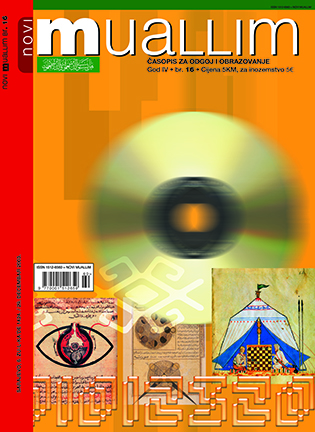THE ISLAMIC APPROACH TO THE FOOD ANDDRINK
DOI:
https://doi.org/10.26340/muallim.v4i16.1534Abstract
The food and drink consumption is the most essential biological and human need. The quality of life considerably depends on the quality of the food. We find pleasure in food and drink. Throughout the history, the people have shown a great respect towards the food, amazed by the God's creation seen in the creation of the food itself. Thus, the meal became the cult or at the very least a ceremony. Showing respect for this cult or ceremony was considered as polite or decent while showing disrespect was considered as impolite or indecent. Islam respects this need under the condition that we are concerned with how much, what, when and where we eat and drink. From the Sharia's point ofvie:.V, the food and drink can be halal -permitted, haram -forbidden and mekruh -criticized. Muslims are to enjoy in only clean, nice and pleasant food. They are not to use dirty, unhealthy food or drink as well as the food or drink that is forbidden by God (haram). They are to avoid all that is suspicious, inadequately clean and what is in such a manner categorized by Sharia (mekruh). Those who prepare food are to take strict care of the personal hygiene as well as of the fact that the food is to be prepared in the clean place. The surfaces need to be washed and cleaned properly prior to the food preparation. The hands need to be washed before every meal. Muslims eat and drink in the name of Allah s.w.t. They start their meal after reciting Bismillah and complete their meal by expressing gratitude to Allah s.w.t. through reciting a short dua especially after a group meal. A group meal is particularly honored in Islam and should be practiced whenever possible. lt strengthens the love and solidarity in the community. A group meal is particularly important for the family as the basic social institution.
Downloads
Published
How to Cite
Issue
Section
License
Naknada:
a. Časopis ne naplaćuje naknadu za obradu članaka (APC) i naknadu za podnošenje članaka.
Autori koji objavljuju u ovom časopisu pristaju na sljedeće uvijete:
- Autori zadržavaju autorska prava i pružaju časopisu pravo prvog objavljivanja, pri čemu će rad jednu godinu po objavljivanju biti podložan licenci Creative Commons imenovanje koja omogućuje drugima da dijele rad uz uvijet navođenja autorstva i izvornog objavljivanja u ovom časopisu.
- Autori mogu izraditi zasebne, ugovorne aranžmane za ne-ekskluzivnu distribuciju rada objavljenog u časopisu (npr. postavljanje u institucionalni repozitorij ili objavljivanje u knjizi), uz navođenje da je rad izvorno objavljen u ovom časopisu.


